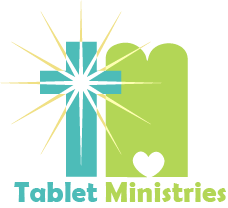Christian Certification & Licensing
About the N.C.C.A
The National Christian Counselors Association licensure is not a state license, not the equivalent of a state licensure, nor a substitute for a state license, rather something distinctly different. Most states have regulatory laws governing the practice of psychology. Many of them also legislate the practice of general counseling. The laws vary from state to state. For example, some states have a counselor category called “Licensed Professional Counselor.” Therefore, the National Christian Counselors Association requires its counselors to clearly identify their license, e.g., “National Christian Counselors Association Licensed Pastoral Counselor” . This helps to ensure that the N.C.C.A. trained counselor is operating within legal and ethical standards, and maintaining the public’s trust and confidence as a pastoral counselor and clergy member.
State regulatory laws help to protect the public and ensure professionalism within the counseling profession for very good reasons. The N.C.C.A. strives also to attain a similar goal within the Christian community and, at the same time, operate within compliance with state laws. Because most states still recognize that counseling is one of the responsibilities of the Church and its’ clergy.
The major difference between state-licensed professional counselors and Pastoral or Christian counselors, who are licensed by the N.C.C.A. and under the authority of the Church (Body of Christ), is clear and well-defined. Counselors who have been licensed by the state are held to strict ethical standards which mandate an individual’s right to be free from religious influence. The state licensed professional counselor in certain states is forbidden to pray, read or refer to the Holy Scriptures, counsel against things such as homosexuality, abortion, etc. Initiating such counsel could be considered unethical by the state.
In most states in the U.S., state licensed counselors “must not promote their personal religious beliefs” according to the code of ethics in each respective state. The only time a state licensed counselor can involve religious (Christian) principles, morals, activities, instruction, etc., is if the counselee initiates or requests counsel in this area. The state-licensed counselor may not have the education, experience and knowledge of Scripture that the N.C.C.A. counselor provides.
Opposite from that, Pastoral counselors are required to pray, share their faith, read the Holy Scriptures, etc. The fact that Pastoral and Christian counselors do these things creates a clear distinction. We are two distinct professions and govern ourselves accordingly.
As you can readily see, the state governs secular counselors and the Church is responsible to set standards and govern ministers who have devoted their lives to the ministry and to Pastoral counseling. None of this is to say that the Christian counselor, minister or priest is not permitted to request fees and receive remuneration for the services they render, as long as they remain adherent to the state laws governing such procedures.
The N.C.C.A. requires all who are certified or licensed by its Licensing Board of Examiners to:
- Be credentialed ministers (ordained, licensed or commissioned) whose goal is to evangelize and ease the emotional pain and suffering of humanity. All ministerial credentials are subject to review and may be accepted or rejected upon determination.
- Provide their service under the authority of a legally organized local church, a national church organization or a 501(c)(3) not-forprofit ministry.
- Complete specialized training provided by the N.C.C.A.
- Complete the minimum requirements for continuing education and annual license renewal.
- Uphold N.C.C.A.’s Code of Ethical Standards.
N.C.C.A.’s published “Code of Ethical Standards” outlines all of the procedures involved in dismissal, revocation, probation and reinstatement of an individual’s membership, certification and/or license and is available for review at www.ncca.org.
NEW LOCATION
Sunnyvale Park Square
129 N. Collins Rd STE 2206
Sunnyvale, TX 75182
(214) 901-7005
